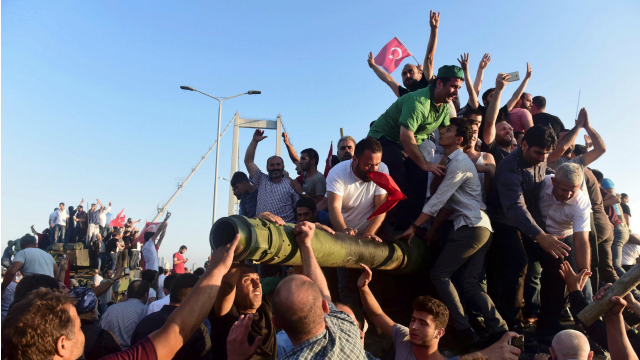
Prime Minister Narendra Modi has been most vocal in fighting terrorism — mainly of the Islamic militant groups based in Pakistan — in the last two years. India has been hectoring the United States and other Western countries to be firm against Pakistan which is seen by India to be covertly supporting Lashkar-e-Taiba (LeT), Jaish-e-Mohammed (JeM) and Hizbul Mujahideen (HuJ), apart from the Taliban in Afghanistan. India now considers the Islamic State (IS) too to be part of the terrorist network that threatens India. The United States, the United Nations and other Western countries, while opposed, in principle, to terrorism, do not share India’s concerns with regard to the Pakistan-based jihadi groups.
The plot takes an interesting twist when India has to deal with pressures and counter-pressures emanating from the West Asian countries facing terrorism in the same way that India does. India faces an embarrassing moment with Turkey asking India to act against the followers of exiled Islamic cleric Fethullah Gulen, who is suspected of being behind the aborted coup in July. It has been found that many of the neo-Sufi organisations in India owe allegiance to Gulen. Turkish foreign minister Mevlut Cavusoglu during his visit to Delhi had requested his Indian counterpart, Sushma Swaraj, that action be taken against the Gulen followers in India. This could place Modi government in a tight spot. If individuals and organisations connected with Gulen in the country are not involved in illegal activities, then the government would be hard put to take action against them. All that the government can hope to do is assure the Turkish government that the Gulenites in India would not be allowed to carry anti-Turkish government activities.
Meanwhile, Syrian President Bashar al-Assad had told visiting minister of state for external affairs MJ Akbar that India should use its position as a leading power in stabilising the volatile West Asia. India has been skirting the Syrian crisis because in principle New Delhi supports the secular regime of Assad, and with the recruitment of some of the Indian youths by the IS, the bonding with Assad has only grown stronger. But India has remained a passive spectator because apart from the United States, the Gulf Arab countries led by Saudi Arabia are opposed to the Assad regime. It is a veritable diplomatic minefield, and India perforce treads carefully.
India’s West Asia outreach is to garner support over Jammu and Kashmir and to counter the meddlesome resolutions of the Organisation of Islamic Countries (OIC) on the subject. The approach, however, seems to be flawed. It will be difficult for the Muslim countries to distance themselves from the OIC and what it says. The utmost that can be expected of the Muslim countries is to maintain neutrality, which many of them already do. Many of them recognise the importance of India and they would not cross its paths on the issue of Kashmir. But there is little they can do to prevent the OIC from taking ideological positions.
The better strategy would be for India to ignore the OIC, which has no diplomatic heft or military force. It is also necessary for New Delhi to understand that sending a Muslim minister to Muslim countries does not help matters.
Successive Congress governments had created a wrong precedent by selecting a Muslim minister to deal with the Arab and other Muslim governments. And the Bharatiya Janata Party (BJP) seems to be following in the footsteps of the Congress. Sending Akbar to the Arab capitals is stereotyping of the worse kind.
[Source:-DNA]



